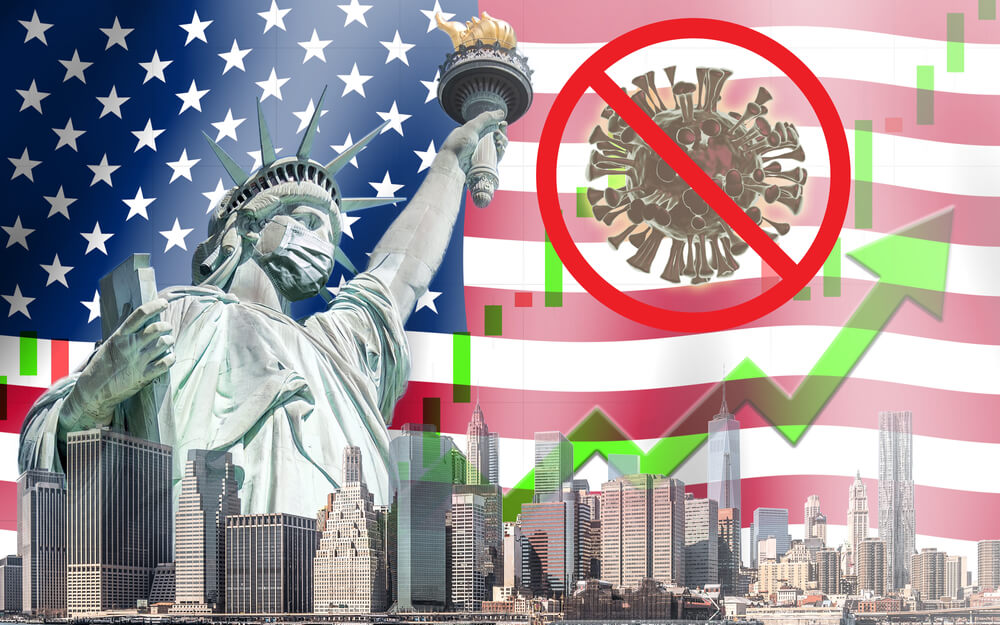U.S. stock market indexes are climbing back to February highs and unemployment is trending in the right direction once again, which has some wondering: Is the COVID-19 recession over? And does it even really matter for investors?
Moody’s Analytics Chief Economist Mark Zandi made a pretty bold statement Wednesday regarding the state of the U.S. economy as it recovers out of the lockdown.
“The good news is I think the recession is over, the COVID-19 recession is over, barring another second wave (of infections), a major second wave, or real serious policy errors,” Zandi told CNBC.
Of course, he sprinkled a little uncertainty by adding that “the recovery will be a slog until there’s a vaccine or therapy that’s distributed and adopted widely.”

Banyan Hill’s Charles Mizrahi
And that sort of vagueness is exactly what Banyan Hill Publishing’s Charles Mizrahi is warning investors against when it comes to an unprecedented event like the coronavirus.
Mizrahi points to a famous quote from legendary investor and former Magellan fund manager Peter Lynch: “If you spend more than 13 minutes analyzing economic and market forecasts, you’ve wasted 10 minutes.”
Mizrahi, Editor of Alpha Investor, points out the fact that this is an unprecedented event, so predicting any sort of outcome is a fruitless effort.
“No one has any clue what will happen next,” Mizrahi wrote via email. “Never before has a $22 trillion economy come to a complete halt and then restarted. We have nothing to base any projection on. So any projections about recessions, economy, growth, etc., are nothing more than guesswork.”
And while Zandi has earned some clout advising one of the top credit rating companies in the U.S., Mizrahi notes that Zandi, just like everyone else, probably didn’t expect this year to work out like it has so far.
“I’d look back in January to what Zandi was saying about GDP for 2020,” Mizrahi said. “I bet you he didn’t factor in COVID-19, stay-at-home orders or economic shut down. If he didn’t get it right then, why the heck should I listen to him now?”
Zandi’s statement came after ADP’s private payrolls shed another 2.76 jobs positions in May. While that’s quite a few jobs lost, it was nowhere near the original projections of 8.75 million.
The better-than-expected news sent stocks roaring higher Wednesday as investors continue to ignore all bad economic data, sending Wall Street close to where it was back when this all started in February — at record highs.
Another 1.877 million people filed for unemployment last week, according to the Labor Department’s weekly report. Economists were expecting 1.775 million claims, but it was around 300,000 less than the week before.
While the rally stalled out a bit Thursday, the Nasdaq 100, which tracks the 100 largest nonfinancial stocks in the Nasdaq composite, was still flirting with all-time highs.
Who Cares About a COVID-19 Recession?
When it comes to unemployment numbers or the likelihood of a recession and how it could affect the stock market, Mizrahi brought up what investing really means in the first place.
“Keep in mind, when you are buying a stock, you are really buying a piece of a business,” Mizrahi wrote. “If the business is financially sound, selling at a bargain price and is in a growing industry … why should you look at the unemployment rate?”
Mizrahi, who has earned accolades as the nation’s No. 1 market timer by Barron’s and been through the best and worst of the market has seen since the 1980s, warns against using indicators like unemployment because you could miss out on big moves up.
“Over time, it ain’t going to make a difference,” Mizrahi said. “If you did look at unemployment numbers, which are a rear view indicator, you would’ve missed investing at the start of great bull markets over the past 75 years.”
Mizrahi has been finding overlooked — and mispriced — opportunities for his Alpha Investor Report readers in this stock market run-up. He specializes in finding solid businesses that are easy to understand.
So when it comes to wondering whether a COVID-19 recession is anything to worry about, ignore the noise and look at concrete facts.
“You are buying a business,” Mizrahi said. “Focus on the knowns, and stop trying to guess the unknown unknowns.”




